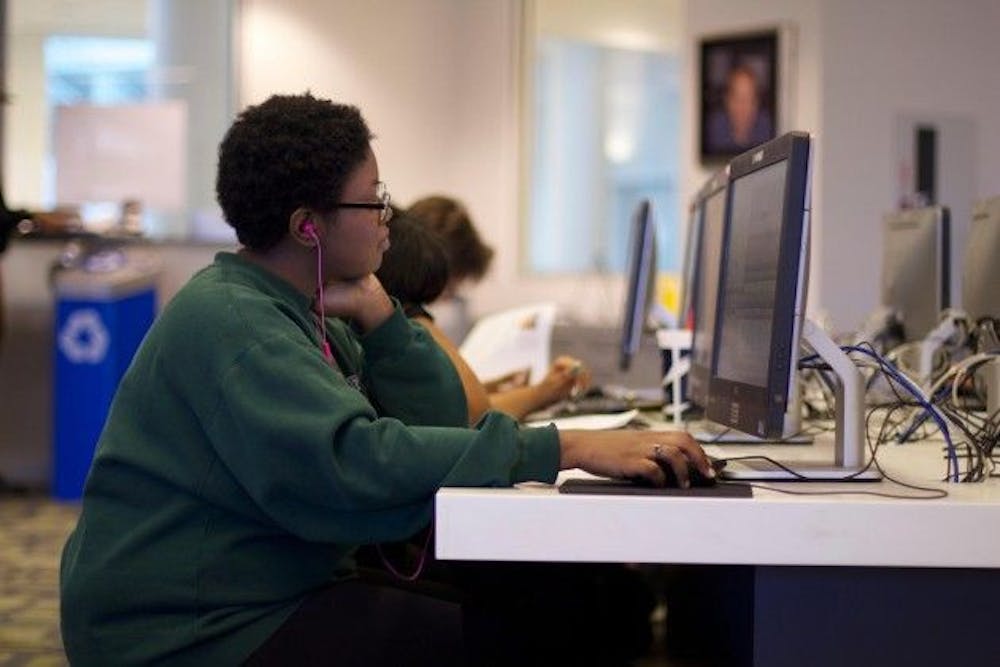In the digital age, it's hard for people to get away from their cyber-screens. From laptops to smart phones, practically everything is done on a computer. At the end of the day, taking time away from the screen before going to bed can make a big difference in sleep quality.
In 2013, 143.3 million people in the United States used smartphones to read the news and check their social media profiles, according to data collected by comScore, a global leader in measuring the digital world.
"Around ten hours of my day I spend looking at a screen," Betsy Milton, library assistant at McWherter Library, said. "Most of my nights are spent reading the news on my small, cracked phone screen."
Whether it's a phone screen or a computer, looking at a backlit display for too long can affect the structure of the cornea.
"Staring at screens for longer than 20 minutes at a time can break down cells and cause damage (to the cornea), dryness and near-point strain," Dr. Melissa Zarn, optometric physician at the University Eye Care center, said.
Near-point strain is caused when looking at something at a reading level for too long. Eye muscles strain to focus on things closer to the face and relax when looking off. This is due to the significantly less number of blinks while at reading level. The eye needs to blink to stay moistened and stable, according to Zarn.
"Most people are zoomed in on whatever they are looking at and forget to blink," Zarn said. She said eye damage becomes a concern whenever someone goes to sleep directly after staring at a screen too long.
"Your eyes are closed when you sleep and lack the oxygen needed to restore the tear film on the surface. Staring (before sleep) without taking breaks every once in a while is easily reversible."
In Zarn's opinion, looking at screens alone cannot harm your vision long term, but other factors like eye shape and pre-existing vision problems can create breakdowns within the cells that aren't easily reversed.
"I know screens have made my eyesight worse," Christie Fair, senior math major, said. She looks at screens for five hours a day at work and about three or four more surfing the Internet at home,
"I want to be a good person and say I don't look at screens that often but when I think of it, with phones and everything, I really do," senior physics major Charissa Shiver said.
According to Zarn, directly before sleep is not the only time to consider stepping away from the screen. In her opinion, people should take breaks periodically throughout the day.
"When taking a break, stare about 20 feet away for 20 seconds," she said.




